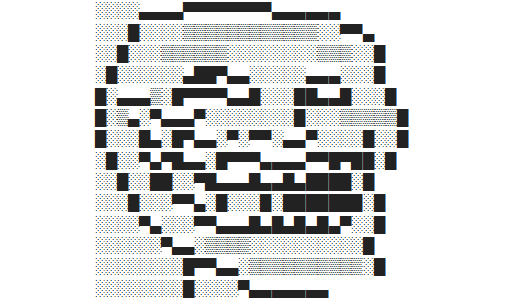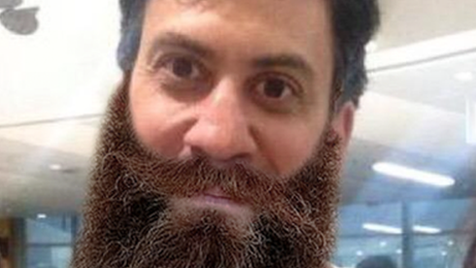Your top comments about... online comments
- Published

Are comments on news websites dead? Well, judging by reaction to a recent post about their possible demise - no way.
Earlier this week, BBC Trending looked at the debate about online comments in depth after news site The Daily Dot decided to close their comments section. The site's editor, Nicholas White, says he's now looking to social media for audience feedback, amid criticism of trolling and incivility on comments sections. But others, such Marie Lyn Bernard, aka Riese, of the LGBT website Autostraddle, says comments can serve a purpose, and that community interaction on a website can be a force for good, and give a tight-knit community a space to air their opinions.
So have online comments had their day? Well if the response to our original post is anything to go by, the answer is no - at least on the BBC website. More than 800 of you contributed to, yes, the comments section underneath this piece, and we read EVERY SINGLE ONE. While no consensus emerged - it could be argued to be a rather boring comments section if it did - many of you came out strongly in favour of comments. (For the absolute avoidance of doubt, there are no plans to do away with comments on the BBC website. Deep breath everyone...)
"Please, please continue with 'Comments' on the BBC. It's about democracy," said user ceres2. "Loss of comments would be an isolating thing," agreed user JamesStGeorge. "I first came to such places not to find those I agreed with but those who might make any case for the opposite left wing views... Debate, heated or not is always good and any censorship bad. Jaw not war."
One user summed it up by saying: "I've been pleasantly surprised to find that I tend to mostly agree with the highest rated comments. I feel happy that people in the U.K. have fairly reasonable and sensible views."
That view was far from universal however. "Comments allow people to safely spew forth the vitriol they wouldn't dare speak out loud in a crowded place. And are about as much use as a chocolate teapot," said user YUG. Another accused the BBC's comments section of being "full of prejudiced bigots who care little for facts or considered analysis."
Amidst the genuine debate, however, there were plenty of chatter that broke one or more of our house rules. A total of 87 comments - a tad over 10% - were removed by moderators, who in this case were members of the BBC's user generated content team. (A variety of people throughout the BBC moderate comments, most often as part of a much wider range of journalistic duties.)
Despite the BBC's clear guidelines, there was a strong contingent who came out against any sort of moderation or editing at all. "What kills HYS is the mods," said blagshaw. "Why can't we just have unmoderated freedom of expression?" agreed user yemenal, "someone posted something that you dont like? so what, get over it." On the other hand: "Lots of comments here about modding - it's quite simple, stay on topic & don't abuse people & you won't get modded. How hard can it be? I'm as guilty as anyone of the above. Stop bleating about mod bias & accept the house rules," said user Baldeeheed.
There were also a few gripes about our 400-character limit, and other suggestions for improvements: "You should have to sign up, and have your identity known. Its too easy to bang off moronic or nasty comments when you are anonymous." (For the record, you do indeed have to sign up in order to post comments on the BBC website... that said, you can post anonymously or pseudonymously once you've done so.)
And what about the self-reflective (some might say navel-gazing) move of inviting comments on a story about comments? Well surprise, surprise - there was plenty of debate on that as well.
"I'm just oddly happy that you have the comments switched on for this article," one user said, while another disagreed: "Of all the articles we can comment on, we can only speak about a comment section based one. Pathetic."
But perhaps we're all taking this a bit too seriously. Pauline Fothergill said: "I can't believe something so ephemeral as online comments is being taken so seriously by so many. It is a bit of fun, slightly narcissistic, and provides enjoyment rather than enlightenment for many. Lighten up, do!" In that vein, user Errant Zoologist drew us a picture, which was nice, although we can't quite figure out what it had to do with the discussion (UPDATE: as several of you have pointed out, the picture is, of course, a troll!):

The debate continues, although we're sorry to say we won't be opening up comments on this post - that's enough comments about comments, thank you very much. But don't let that stop you from letting us know what you think on Facebook, external or Twitter, external. You can even send us an email, external. Just please try to stick to the house rules!
Next story: What's the deal with Ed Miliband's facial hair?

There are serious political stories; this isn't strictly one of them. A picture of Ed Miliband apparently on holiday in Australia was originally posted to Twitter - and he has a beard. READ MORE
You can follow BBC Trending on Twitter @BBCtrending, external, and find us on Facebook, external. All our stories are at bbc.com/trending.